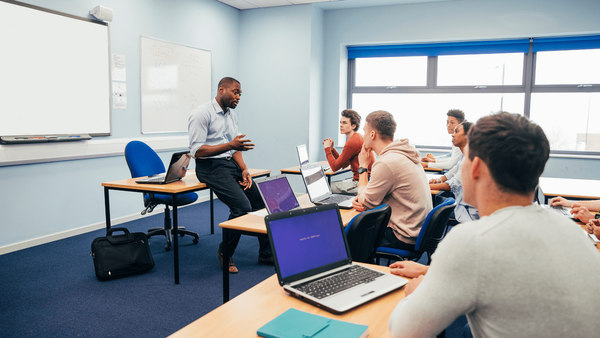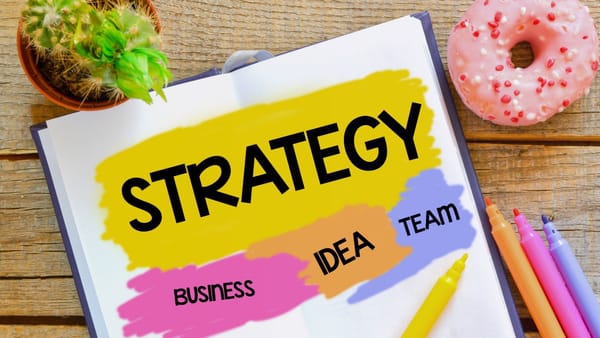Integrated Curriculum Design: Blending Cognitive, Social-Emotional, and Behavioural Learning
Integrated curriculum design unites cognitive, social-emotional, and behavioural learning to prepare TVET students for real-world career success.
Integrated curriculum design unites cognitive, social-emotional, and behavioural learning to prepare TVET students for real-world career success.

Integrated curriculum design represents a transformative shift in how technical and vocational education and training (TVET) programmes prepare students for professional success. Rather than compartmentalising theoretical knowledge, social skills, and practical experience into separate silos, integrated curriculum design weaves these three essential learning dimensions together into a cohesive educational framework. This approach ensures that learners don't simply accumulate information—they develop the cognitive foundations, emotional intelligence, and hands-on competencies that modern employers demand.
The significance of integrated curriculum design has grown considerably as industries evolve and require graduates who can solve complex problems, collaborate effectively, and adapt quickly to changing workplace demands. By blending these three learning dimensions, educational institutions can create programmes that genuinely prepare students for the realities of their chosen careers, whether in renewable energy, engineering, marketing, or human resource management.
The roots of integrated curriculum design stretch back to the early 20th century, when pioneering educational theorists fundamentally challenged conventional teaching methods. John Dewey, America's most influential educational philosopher, advocated passionately for experiential learning—the idea that students learn most effectively when they engage directly with their environment and solve authentic problems. Maria Montessori complemented this philosophy with her emphasis on self-directed learning and the interconnectedness of knowledge across disciplines.
Dewey's philosophy centred on a revolutionary concept: education should connect classroom learning with real-life experiences, enabling students to develop critical thinking and problem-solving abilities in meaningful contexts. This wasn't abstract theorising—Dewey believed students should work with actual materials, engage with their communities, and understand the practical applications of what they learned. His work laid the intellectual foundation upon which modern integrated curriculum design has been built.
Over the past century, integrated curriculum design has evolved significantly, incorporating insights from cognitive science, developmental psychology, and educational research. Today, educational institutions worldwide—from primary schools to postgraduate programmes—have embraced this methodology. Progressive education systems in countries such as Finland and Singapore have become international models, demonstrating how integrated approaches produce superior learning outcomes and higher student engagement.
The movement towards integration has accelerated because traditional, compartmentalised educational models have proven inadequate for preparing students for contemporary workplaces. Employers increasingly report that graduates lack not just technical skills, but the collaborative abilities, emotional resilience, and adaptive thinking required in modern professional environments. This gap has motivated universities, colleges, and training providers to adopt interdisciplinary approaches that blend science, technology, engineering, arts, and mathematics (STEAM) into more comprehensive educational experiences.
TVET programmes are particularly well-suited to integrated curriculum design because vocational education inherently focuses on preparing students for specific trades and professional roles. The best TVET programmes recognise that technical proficiency alone is insufficient—graduates must combine practical expertise with professional communication skills and workplace resilience.
Cognitive Learning: Building Theoretical Foundations
Cognitive learning in TVET comprises the theoretical knowledge that underpins technical competence. This dimension addresses the "why" and "how" behind professional practice. For instance, an electrical engineering course includes detailed study of electrical theory, circuit design principles, safety regulations, and compliance standards. Students learn to understand the science and principles governing their field, not merely follow procedures memorised by rote. This theoretical grounding enables professionals to troubleshoot problems, innovate solutions, and adapt their knowledge to novel situations they encounter throughout their careers.
Social-Emotional Learning: Developing Workplace Relationships
Social-emotional learning (SEL) develops the interpersonal competencies that determine professional success. Group projects, collaborative activities, and structured team exercises teach students how to communicate effectively, manage conflicts productively, and support colleagues through challenges. In a hospitality management programme, for example, students might work collaboratively to organise a complex mock event—requiring coordination across different roles, clear communication under pressure, and problem-solving when unexpected issues arise. These experiences develop emotional intelligence, the ability to read social dynamics, and the resilience required for team-based work environments.
Behavioural Learning: Acquiring Practical Competence
Behavioural learning encompasses the hands-on experience where students apply theoretical knowledge in authentic professional contexts. Practical workshops, apprenticeships, on-the-job training, and supervised practice are core components that transform understanding into competence. A catering programme, for instance, includes extensive cooking practice, internships in professional kitchens, and participation in culinary competitions. Through repetition in realistic settings, students develop the muscle memory, procedural fluency, and professional judgment required to perform complex tasks reliably.
Cognitive Component: Students engage with comprehensive theoretical lessons covering renewable energy principles, including solar, wind, hydro, and bioenergy systems. The curriculum addresses not only the engineering science but also environmental impacts, policy frameworks, economic factors affecting adoption, and emerging technologies shaping the sector.
Social-Emotional Component: Students work in small groups to design comprehensive sustainable energy solutions, then present their proposals to peers and industry professionals. This collaborative process develops communication skills, creative thinking, and the ability to defend technical decisions to non-specialist audiences. Students learn to incorporate diverse perspectives, negotiate design trade-offs, and build consensus within their team.
Behavioural Component: Hands-on workshops where students construct and test renewable energy models—building small-scale solar panel arrays, wind turbine prototypes, or energy storage systems. This practical experience transforms theoretical knowledge into tangible understanding, builds confidence in technical ability, and provides portfolio pieces demonstrating real competence to potential employers.
Cognitive Component: In-depth examination of engineering principles, advanced mathematics, physics, and design theory. Students study the scientific foundations necessary for understanding current engineering practice and developing innovative solutions to emerging challenges. The curriculum includes case studies of real engineering projects, failures and successes, to illustrate how theoretical principles apply in practice.
Social-Emotional Component: Substantial team-based projects requiring students to design, develop, and present engineering solutions to complex problems. These projects demand leadership development, project management skills, and the ability to negotiate technical disagreements constructively. Students experience both the rewards of collaborative success and the challenges of working in diverse teams—preparing them for professional engineering environments where collaboration is essential.
Behavioural Component: Laboratory sessions, design studios, and extended internships where students apply their knowledge to authentic engineering problems. These supervised practical experiences build the technical confidence, professional judgment, and problem-solving flexibility required in engineering practice. Students learn to use industry-standard tools, follow professional conventions, and understand how theoretical design translates into manufacturing reality.
Cognitive Component: Structured instruction covering marketing theory, consumer behaviour analysis, market research methodologies, and strategic planning frameworks. Apprentices develop a comprehensive understanding of how marketing functions contribute to business objectives and learn to analyse market data to inform strategic decisions.
Social-Emotional Component: Collaborative projects where apprentices create marketing campaigns from conception through execution, then pitch their work to colleagues and business leaders. This experience builds presentation skills, teaches how to incorporate feedback, develops creative confidence, and demonstrates the importance of clear communication in professional marketing environments.
Behavioural Component: On-the-job training where apprentices implement marketing strategies in live business contexts and analyse effectiveness using real data. Practical tasks—conducting customer surveys, managing social media accounts, organising promotional events—provide valuable hands-on experience. Apprentices see the direct consequences of their work, develop professional judgment about what works in their market, and build a professional portfolio demonstrating genuine capability.
Cognitive Component: Comprehensive instruction covering human resource theory, employment law, organisational behaviour, talent management strategies, and contemporary HR challenges. Students develop a sophisticated understanding of HR's strategic role in organisational success and learn evidence-based approaches to common HR challenges.
Social-Emotional Component: Structured role-playing exercises and facilitated group discussions exploring realistic scenarios in conflict resolution, leadership development, and negotiation skills. Students practise managing difficult conversations, develop empathy for different perspectives, and build the emotional resilience required when managing sensitive employee relations issues. These activities develop the interpersonal confidence required for effective HR practice.
Behavioural Component: Real-world HR projects, supervised internships, and extensive case study analysis where students apply their knowledge to actual HR functions—from recruitment and selection through onboarding and employee development. This practical experience prepares students to navigate the complexity of real workplaces, build effective working relationships with diverse colleagues, and manage the ambiguity inherent in HR practice.
Students who learn through integrated curriculum design develop more durable, flexible knowledge than those in compartmentalised programmes. When students understand not just what they should do but why those actions matter in real professional contexts, they retain information more effectively and can apply knowledge to novel situations. Research in cognitive psychology consistently demonstrates that contextualised learning produces superior retention and transfer compared to decontextualised memorisation.
Integration of social-emotional learning ensures students graduate with highly developed communication abilities, teamwork competence, leadership potential, and emotional intelligence—precisely the soft skills employers consistently identify as most important. These capabilities cannot be developed through textbooks or lectures alone; they require structured practice in realistic social situations where students experience natural consequences for their interpersonal choices.
Behavioural learning ensures students enter their professions with genuine practical competence, not merely theoretical knowledge. They've solved real problems, used actual tools and systems, and experienced the satisfactions and frustrations of professional practice. This concrete experience builds confidence, professional judgment, and the ability to manage the unexpected situations that characterise real work.
By deliberately integrating all three learning dimensions, integrated curriculum design produces graduates who are not simply technically competent, but well-rounded professionals with strong interpersonal skills, emotional resilience, and the adaptive thinking required for career longevity. In an era of rapid technological change, these qualities—the ability to learn continuously, collaborate effectively, and maintain professional resilience—often matter more than specific technical knowledge.
Begin by honestly assessing your existing programme's structure. Identify where cognitive, social-emotional, and behavioural learning currently occur, and more importantly, where gaps exist. Many traditional programmes emphasise cognitive learning heavily while providing minimal social-emotional development and inconsistent practical experience. Mapping this current state provides essential baseline information for redesign.
Rather than focusing solely on technical knowledge outcomes, develop explicit learning outcomes for social-emotional and behavioural dimensions. What communication abilities should graduates possess? What evidence of collaborative capability? What practical skills should they demonstrate? Clear outcome statements guide curriculum development and assessment design.
Move beyond parallel delivery of these three elements. Instead, design activities where cognitive, social-emotional, and behavioural learning happen simultaneously. A group project where students solve an authentic professional problem requires cognitive understanding, involves social-emotional learning through teamwork, and develops practical capability through hands-on work. Such integrated activities are more efficient and create more powerful learning than teaching these dimensions separately.
Design assessments that evaluate performance across all three dimensions. Practical assessments that require students to demonstrate technical skill while explaining their reasoning develop cognitive competence. Group-based assessments where peers and instructors evaluate collaboration develop social-emotional awareness. Portfolio-based assessment that tracks student growth across dimensions provides richer feedback than traditional examinations.
Integrated curriculum design requires learning environments that support risk-taking, collaboration, and reflection. Students need psychologically safe spaces where they can practise new skills, make mistakes, and learn from failures. Instructors need training in facilitation techniques that support both cognitive challenge and emotional safety. Physical spaces should support group work, practical activity, and reflection.
Integrated curriculum design represents a evidence-based, comprehensive approach to TVET that addresses the full range of capabilities modern employers value. By deliberately combining cognitive learning that builds theoretical understanding, social-emotional learning that develops interpersonal capability, and behavioural learning that creates practical competence, educational institutions create learning experiences that genuinely prepare students for professional success.
Whether developing renewable energy specialists, engineering professionals, marketing practitioners, or HR leaders, institutions that embrace integrated curriculum design principles produce graduates who are not simply technically knowledgeable, but well-rounded professionals capable of contributing effectively to their organisations from day one. In an increasingly complex and interconnected professional world, this holistic approach to vocational education has shifted from innovative practice to essential necessity.
Traditional education typically separates knowledge into distinct subject areas taught by different instructors with limited connection between disciplines. Integrated curriculum design, by contrast, deliberately connects cognitive theory, social-emotional development, and practical behavioural learning within a cohesive framework. In practice, integrated programmes use activities that simultaneously develop knowledge, interpersonal capability, and practical skills, rather than teaching these separately. This approach produces graduates who understand not just what to do, but why it matters and how to work effectively with colleagues to accomplish professional objectives.
Employers consistently report that whilst many graduates possess adequate technical knowledge, many lack the soft skills, collaborative ability, and practical confidence required for productive work. Integrated curriculum design directly addresses this gap by ensuring graduates possess not just theoretical knowledge but demonstrated capability across all three dimensions. Students graduate with evidence of collaborative achievement, communication ability, and practical problem-solving—precisely what employers value most.
Integrated curriculum design principles apply across virtually all vocational fields, from healthcare and engineering to hospitality and skilled trades. The specific implementation will vary—a construction programme's behavioural learning looks different from an IT programme's—but the fundamental principle remains consistent: combining cognitive understanding, social-emotional capability, and practical skill produces better-prepared professionals. Programmes in every sector benefit from this more comprehensive approach to learning.
Common challenges include staff requiring professional development to facilitate integrated approaches, physical spaces designed for traditional compartmentalised teaching requiring modification, and assessment systems designed for knowledge testing requiring redesign. Additionally, implementing integrated approaches often requires closer collaboration between instructors than traditional models demand. However, institutions that address these challenges systematically report significantly improved student outcomes and employer satisfaction.
Assessment in integrated programmes should evaluate performance across all three dimensions rather than testing knowledge in isolation. Practical demonstrations allow assessment of both cognitive understanding and behavioural capability. Group-based projects with peer evaluation develop social-emotional awareness and provide feedback on collaboration. Portfolio assessment tracking growth across dimensions provides richer information than traditional examinations. Authentic assessment—evaluating performance on tasks resembling real professional work—proves particularly effective in integrated programmes.



